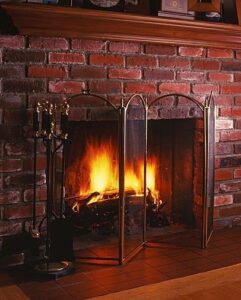When it comes to home improvement or DIY projects, having the right hand tools can make all the difference. I often find myself emphasizing the importance of owning a solid set of hand tools. Whether you’re a seasoned pro or just starting out, understanding the various types of hand tools and their uses can elevate your projects to a whole new level. In this article, I’ll delve into the essential hand tools that every homeowner or DIY enthusiast should consider adding to their toolkit.
Understanding Hand Tools: The Basics
Hand tools are any tools that are powered by human effort rather than electricity. This includes a wide range of items such as hammers, screwdrivers, pliers, and wrenches. Each tool serves a specific purpose, and having the right one can save time and prevent frustration. But why are hand tools so vital?
- Versatility: Many hand tools can be used for multiple tasks, making them invaluable in any toolkit.
- Cost-Effective: Hand tools are often cheaper than power tools and require less maintenance.
- Portability: They are easy to transport and can be used in various locations.
Essential Hand Tools for Every Home
With a myriad of hand tools available, it can be overwhelming to know which ones are essential. Here’s a list of must-have hand tools that I believe everyone should have:
- Hammer: The classic hammer is indispensable for driving nails into wood or other materials.
- Screwdrivers: A set of both flathead and Phillips screwdrivers is crucial for assembling furniture or fixing appliances.
- Pliers: These are perfect for gripping, twisting, and cutting wire or other materials.
- Wrenches: An adjustable wrench can save the day when tackling plumbing issues or assembling machinery.
- Measuring Tape: Accurate measurements are key to any project, making a measuring tape a non-negotiable tool.
- Utility Knife: Ideal for cutting various materials, a utility knife is versatile and easy to handle.
- Level: Ensuring that your shelves or pictures are straight can be done with a simple level.
The Importance of Quality in Hand Tools
When it comes to purchasing hand tools, quality should never be compromised. Cheap tools may seem tempting, but they can lead to frustration and inefficiency. Investing in high-quality hand tools pays off in the long run, as they tend to last longer and perform better.
How to Choose the Right Hand Tools
Choosing the right hand tools is essential. Here are some tips I recommend:
- Research: Take the time to read reviews and compare different brands.
- Feel: If possible, hold the tools in your hand to see how comfortable they feel.
- Consider the Purpose: Choose tools based on the specific projects you plan to undertake.
Maintenance Tips for Longevity
Proper maintenance is key to prolonging the life of your hand tools. Here are a few practical tips:
- Clean After Use: Wipe down tools after each use to remove dirt and grime.
- Store Properly: Keep your tools organized in a toolbox or on a pegboard to avoid damage.
- Inspect Regularly: Check your tools for any signs of wear and tear, and replace them as needed.
Common Mistakes to Avoid with Hand Tools
Even experienced DIYers make mistakes. Here are some common pitfalls to avoid:
- Using the Wrong Tool: Always use the appropriate tool for the task at hand.
- Neglecting Safety: Always wear safety gear when using tools to protect yourself.
- Overlooking Maintenance: Regular maintenance can prevent costly repairs or replacements.
Frequently Asked Questions about Hand Tools
What should I consider when buying hand tools?
Consider the tool’s quality, comfort, and the specific tasks you will be using it for. It’s essential to invest in tools that will meet your needs without breaking the bank.
How do I know if my hand tools are of good quality?
Look for reputable brands, check reviews, and pay attention to the materials used in construction. High-quality tools often have a solid feel and come with a warranty.
Can I use hand tools for professional projects?
Absolutely! Many professionals still rely on hand tools for specific tasks because they offer precision and control that power tools may not provide.
How do I maintain my hand tools?
Clean them after each use, store them properly, and regularly check for wear and tear. Keeping them in good condition ensures they will last for years.
In conclusion, hand tools are the backbone of any successful DIY project. With a solid understanding of the essential tools, their uses, and how to maintain them, you can tackle any project with confidence. Remember, the right tools not only make the job easier but also more enjoyable!






